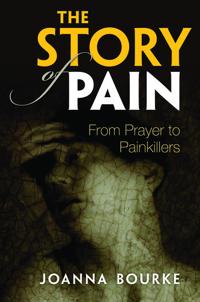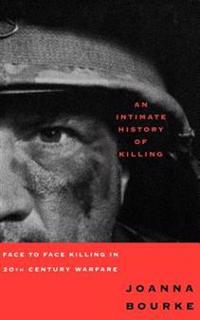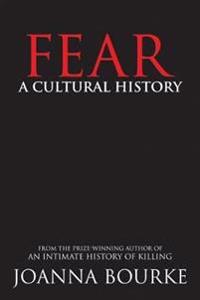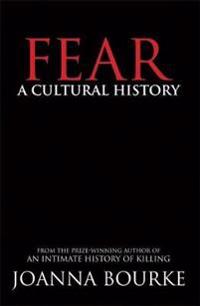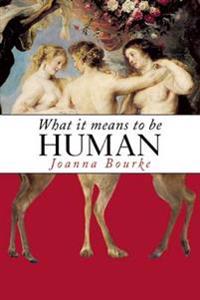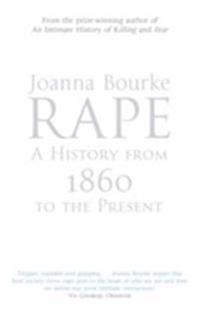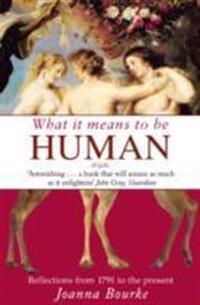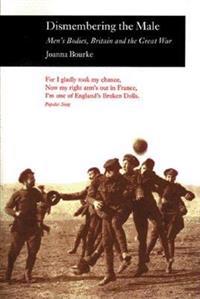The Story of Pain (Inbunden)
avJoanna Bourke
ISBN: 9780199689422 - UTGIVEN: 2014-06Everyone knows what is feels like to be in pain. Scraped knees, toothaches, migraines, giving birth, cancer, heart attacks, and heartaches: pain permeates our entire lives. We also witness other people - loved ones - suffering, and we 'feel with' them. It is easy to assume this is the end of the sto[...]
Wounding the World (Inbunden)
avJoanna Bourke
ISBN: 9780349004327 - UTGIVEN: 2014-11Wars are frequently justified 'in our name'. Militarist values and practices co-opt us, permeating our language, invading our dream space, entertaining us at the movies or in front of game consoles. Our taxes pay for those war machines. Our loved ones are killed and maimed. With killing now an integ[...]
Working Class Cultures in Britain, 1890-1960 (Häftad)
avJoanna Bourke
ISBN: 9780415098984 - UTGIVEN: 199312Integrating a variety of historical approaches and methods, Joanna Bourke looks at the construction of class within the intimate contexts of the body, the home, the marketplace, the locality and the nation to assess how the subjective identity of the 'working class' in Britain has been maintained th[...]
An Intimate History of Killing (Häftad)
avJoanna Bourke
ISBN: 9780465007387 - UTGIVEN: 200011The characteristic act of men at war is not dying, but killing. Politicians and military historians may gloss over human slaughter, emphasizing the defense of national honor, but for men in active service, warfare means being - or becoming - efficient killers. In An Intimate History of Killing, hi[...]
Fear (Inbunden)
avJoanna Bourke
ISBN: 9781593761134 - UTGIVEN: 200606"Fear -- the word, itself, conjures the appropriate response. With a dark cacophony of associations like fright, dread, horror, panic, alarm, anxiety, and terror, fear is universally understood as one of the most basic and powerful of human emotions, obtaining a nearly palpable and overwhelming subs[...]
Rape (Inbunden)
avJoanna Bourke
ISBN: 9781593761141 - UTGIVEN: 2007-11Joanna Bourke takes the issue of rape out from the academic ghettos and distills the truth so often exploited to sell newspapers. Neither prurient nor overly sympathetic, she investigates rape from a historical standpoint examining the history of sexual aggression, the idea of rape as a social const[...]
Fear (Häftad)
avJoanna Bourke
ISBN: 9781593761547 - UTGIVEN: 200706"Fear -- the word, itself, conjures the appropriate response. With a dark cacophony of associations like fright, dread, horror, panic, alarm, anxiety, and terror, fear is universally understood as one of the most basic and powerful of human emotions, obtaining a nearly palpable and overwhelming subs[...]
What It Means to Be Human: Historical Reflections from the 1800s to the Present (Häftad)
avJoanna Bourke
ISBN: 9781619021679 - UTGIVEN: 2013-07Rape (Storpocket)
avJoanna Bourke
ISBN: 9781844081554 - UTGIVEN: 200807Joanna Bourke, author of the critically-acclaimed Fear, unflinchingly and controversially moves away from looking at victims to look at the rapists. She examines the nature of rape, drawing together the work of criminologists, sociologists and psychiatrists to analyse what drives the perpetrators of[...]
What it Means to be Human (Storpocket)
avJoanna Bourke
ISBN: 9781844086450 - UTGIVEN: 201303In 1872, a woman known only as 'An Ernest Englishwoman' published an open letter entitled 'Are women animals?', in which she protested the fact that women were not treated as fully human. In reality, their status was worse than that of animals: regulations prohibiting cruelty against dogs, horses an[...]
Dismembering the Male (Pocket)
avJoanna Bourke
ISBN: 9781861890351 - UTGIVEN: 1999-05That notions of femininity were seriously disrupted during the First World War has become obvious in recent years. But what happened to masculinity at the same time? Based on letters, diaries and oral histories, "Dismembering the Male" explores the impact of the 'war to end all wars' on the male bod[...]

